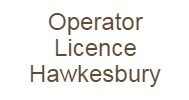Verification of the will - holographic or witnessed
Responsibility: Courthouse
A holographic will or a will made in the presence of witnesses must be probated by the Superior Court in order to establish that it is indeed the will of the deceased person.
The first step is to consult a lawyer or notary who will prepare the application for probate. The application can also be prepared by the executor, provided it is in proper form.
Note: The will prepared or drafted by a lawyer must be a witnessed will and must also be probated by the Court.
In the event of a death, it is necessary to have the will of the deceased probated by the Superior Court or a notary to confirm that it is a will of the testator if it is made in the form of a will:
- Holographic;
- made before witnesses.
- Amendments to the original will, if made in one of these forms, must also be verified.
A will drafted or prepared by a lawyer must also be probated, as it is considered a witnessed will, but a notarized will and amendments made before a notary need not be probated by the court.
The main purpose of probate is to :
- establish that the will is facially valid
- to give publicity to the will, which is filed in the court records
- provide certified copies of the original.
This is done by way of a petition for probate. This request is made before a judge or the clerk of the Superior Court of the judicial district where the testator :
- resided;
- died;
- left property.
- Unless exempted by the court, the petition for probate must be served on all known heirs and successors by notice to the successors so that they are aware of the petition and can intervene, if necessary.
Once the will has been probated, the clerk or notary keeps the original and gives a certified copy to the applicant.
It should be noted that, under certain conditions, the probate does not prevent the will from being contested later. In addition, a notary may not probate a will that he or she or another member of the same notary's office has received in deposit.












